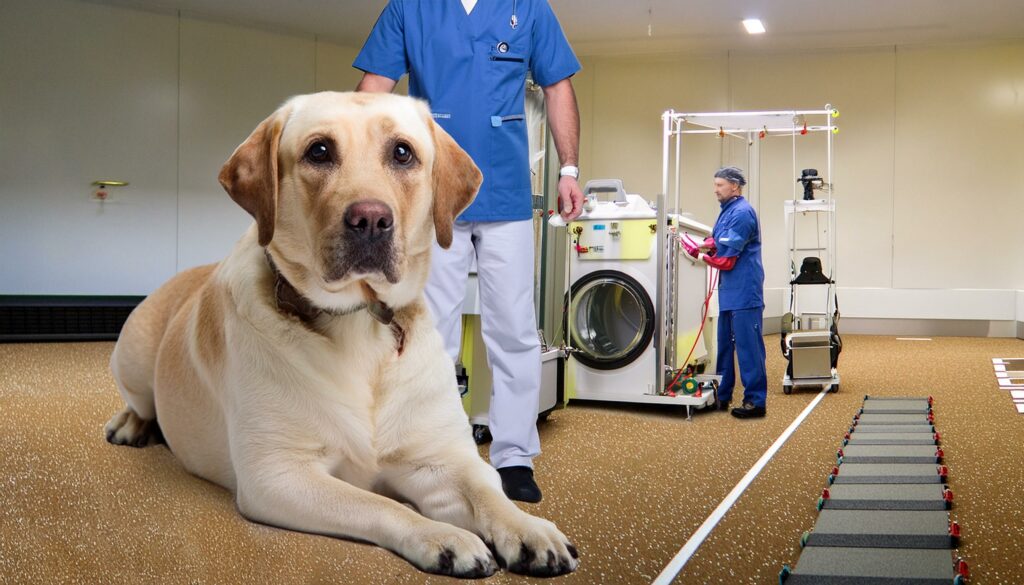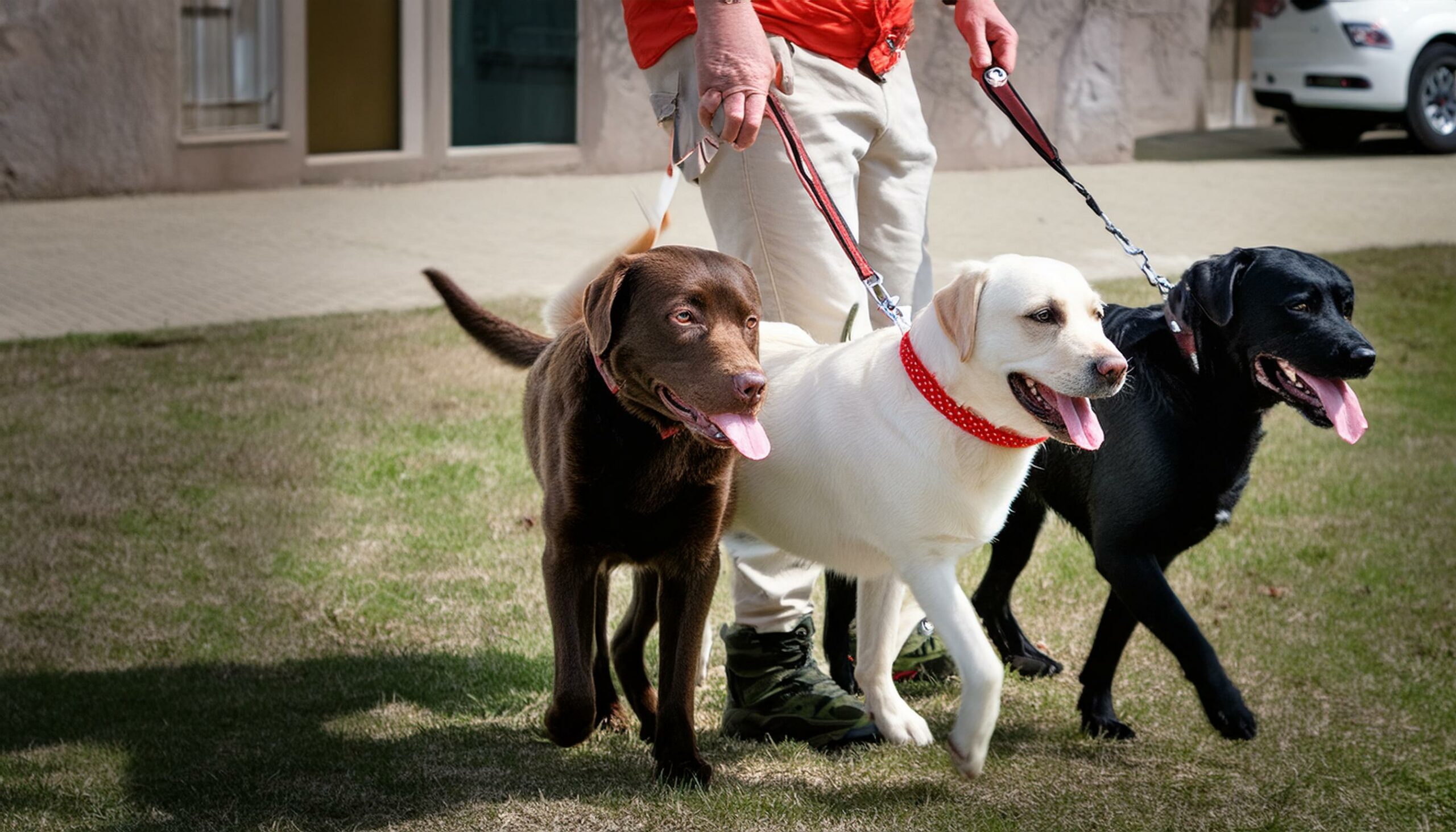Labrador Retrievers, or Labradors, are among the most cherished dog breeds worldwide, praised for their gentle demeanor and adaptability. These dogs are not only beloved family companions but also excel in roles such as therapy and assistance dogs, and participants in various canine sports. The question many prospective and current Labrador owners ask is: “How long do Labradors last?” Understanding the lifespan of a Labrador is essential for those looking to welcome one into their home or seeking to ensure their aging pet remains healthy. This comprehensive guide delves into the factors affecting a Labrador’s lifespan, offers advice on prolonging their life, and discusses how to care for them in their golden years.
Understanding Labrador Lifespan
The average lifespan of Labradors is generally between 10 to 12 years, although some may live longer with optimal care. Various factors, including genetics, lifestyle, and healthcare, play significant roles in determining how long a Labrador will live.
Genetic Health Factors
Labradors are predisposed to certain genetic health issues that can impact their lifespan. Conditions such as hip and elbow dysplasia, progressive retinal atrophy, and hereditary myopathy are prevalent among the breed. These diseases can significantly affect a Labrador’s quality of life and longevity.
- Hip and Elbow Dysplasia: These are common in larger breeds and involve malformed joints, which can lead to pain and mobility issues.
- Progressive Retinal Atrophy: This condition involves the gradual deterioration of the retina, potentially leading to blindness.
- Hereditary Myopathy: Affects muscle function, leading to general weakness and fatigue.
Understanding these conditions can help owners seek preventive measures and treatments that may extend the health and lifespan of their Labradors.
Environmental Factors
The living environment and lifestyle of a Labrador also influence their health and longevity. Factors such as diet, exercise, and their general living conditions are critical components.
- Diet and Nutrition: Proper nutrition is paramount in maintaining a Labrador’s health. A balanced diet suited to their age, weight, and health needs can prevent obesity and related health issues.
- Exercise and Activity Levels: Labradors are energetic and require regular exercise to maintain a healthy weight and prevent diseases such as arthritis and diabetes.
Medical Care
Regular veterinary care is crucial for maintaining a Labrador’s health. Routine check-ups can catch and address health issues before they become severe. Preventative measures, including vaccinations, flea and tick prevention, and dental care, contribute significantly to a Labrador’s overall health and longevity.
Phases of a Labrador’s Life

Understanding the different life stages of a Labrador—puppyhood, adulthood, and senior years—can help owners provide the right care at each stage.
Puppyhood and Adolescence
During this stage, focusing on proper training, socialization, and laying the foundation for a healthy diet and exercise routine is essential.
Adulthood
This is the longest phase of a Labrador’s life, during which maintaining a routine of exercise, diet, and preventive healthcare is crucial.
Senior Years
As Labradors enter their senior years, they may require adjustments in their diet and exercise regimen. Monitoring for signs of aging and managing chronic health issues becomes critical.
Signs of Aging in Labradors
Recognizing the signs of aging in Labradors can help owners provide the necessary care to maintain their quality of life. These signs include:
- Physical Changes: Slower movements, difficulty climbing stairs, and sleeping more than usual.
- Behavioral Changes: Decreased interest in activities they once enjoyed or changes in their interaction with family members.
Enhancing Labrador Longevity

To enhance a Labrador’s longevity, owners should consider the following:
- Diet Tips: Feed high-quality, age-appropriate dog food to support overall health and energy levels.
- Exercise Regimes: Tailor exercise routines to the Labrador’s age and physical ability to keep them active and engaged.
Mental Health and Wellbeing
Maintaining a Labrador’s mental health is as crucial as physical health. Engaging them in mental exercises and ensuring they have regular social interactions can prevent depression and anxiety, which can affect their overall health.
The Role of Responsible Breeding
Choosing a Labrador from a reputable breeder who conducts health screenings and genetic testing can greatly influence the health and lifespan of the dog. Ethical breeding practices can reduce the prevalence of genetic disorders in the breed.
When to Say Goodbye
Understanding when a Labrador’s quality of life has deteriorated beyond repair is painful but important. Discussing quality of life with a veterinarian can help make this difficult decision based on the dog’s health and wellbeing.
Conclusion
Labradors are wonderful companions that bring joy and love to their families. While their time with us can vary, understanding and addressing the factors that influence their lifespan can help ensure that they live full, healthy lives. By providing proper care, regular medical attention, and lots of love, owners can often extend the quality and duration of their Labradors’ lives.
FAQs After the Conclusion
What is the longest a Labrador has ever lived?
Records suggest some Labradors have lived up to 15-17 years under exceptional circumstances.
How can I tell if my Labrador is aging well?
Signs of good aging include maintaining a healthy weight, active interest in surroundings, and minimal chronic disease.
What are the best foods to feed an aging Labrador?
Senior dog foods that are lower in calories but high in fiber and rich in essential nutrients are ideal.
How much exercise does an older Labrador need?
While less intense, daily gentle exercise is crucial for maintaining health and mobility in older Labradors.
How can I improve my Labrador’s quality of life in its senior years?
Regular veterinary visits, suitable adjustments to diet and exercise, and lots of affection can greatly enhance a senior Labrador’s quality of life.
